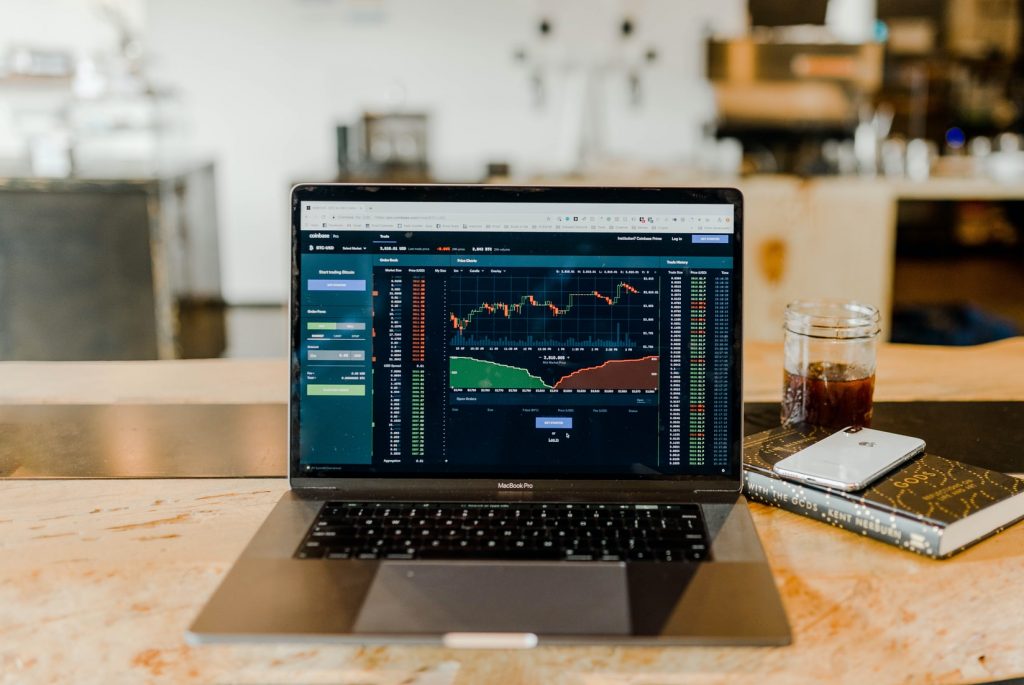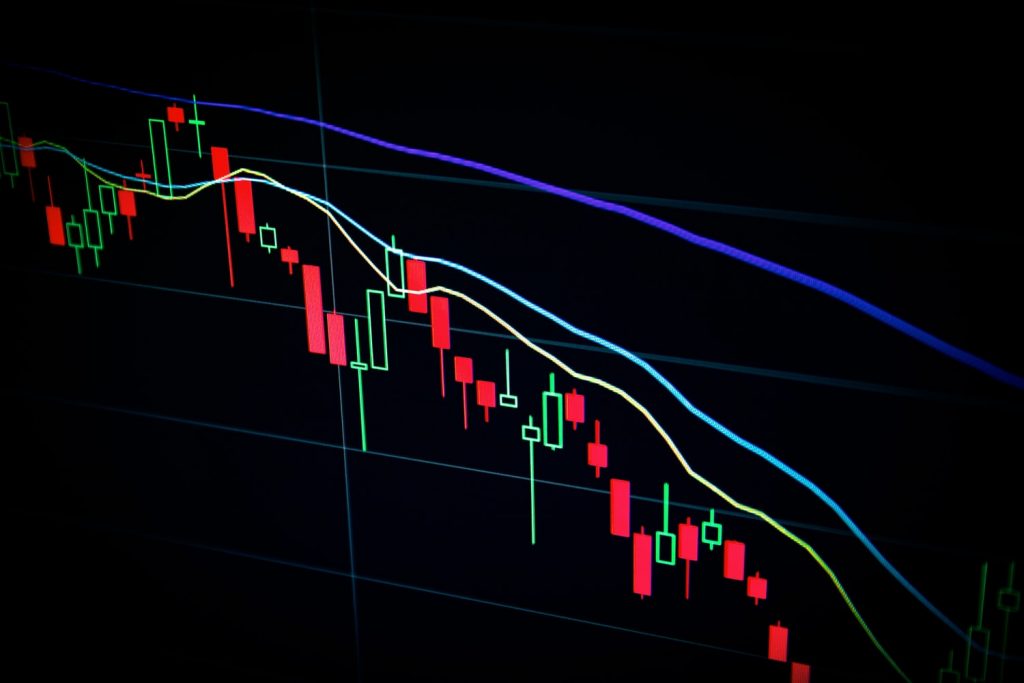Nowadays, trading CFDs for a living is possible through determination, careful investment, research and some luck. With CFDs gaining popularity as a method of day trading, it has never been easier to start. This article will guide you through getting started CFD trading for a living, what the pros and cons are and the taxes you should be mindful of. We have also compiled a list of our top CFD brokers below.
Guide To Trading CFDs For A Living
Although difficult, it is not impossible to make a living through CFD trading. What this article aims to do is give you tips and ideas on how to correctly start trading CFDs for a living, as well as help you avoid making simple mistakes. To become a profitable CFD trader you only need an internet-capable device such as a computer, phone or tablet.
Collect Your Capital
Like any other kind of investment, CFD traders require some initial funds to get started. As the famous saying goes, “you need money to make money” and CFD trading is no different, though leverage can give you a nice boost. The key thing to remember when deciding how much money to put up as your trading capital is that you should never put in more than you can bear to lose. Although CFD trading for a living can bring about plentiful returns, it can also bring losses that are just as large.
One perk of trading CFDs for a living is that the amount of funding you require to get exposure to the full price of stocks, commodities, indices, etc is minimal, with margin trading levels as low as 5%. 
Choose A CFD Market
When thinking about how to start CFD trading for a living, you must consider what kind of financial markets you want to get involved with.
There are various types of CFDs available that cover almost every commercial derivatives market. If you want to follow the success or failure of a well-known company, then stock CFDs can be beneficial for you. On the other hand, if you prefer to deal with a less volatile measure of a market rather than relying on the performance of a single stock, then equity index CFDs might be the right option for you. Other popular markets for CFD trading are crypto CFDs, forex CFDs, commodity CFDs, and ETF CFDs.
Find A Broker
Choosing the right broker is perhaps the most critical step in your CFD trading career. A good platform can make the difference between successful trading and failing to achieve your goals. This stage requires some research, but we’ve listed some of the key factors to consider below:
- Fees And Costs: Many CFD fees may seem insignificant at first, but they can quickly build up, particularly when making frequent trades. It’s best to compare a range of brokers to determine which one has the most competitive pricing structure. However, you should also consider which fees are most relevant to your trading style.
- Customer Support: Good customer service is essential to ensuring a seamless trading process. Some brokers provide 24/7 customer support in multiple languages. Even if you don’t use the service frequently, you’ll likely appreciate working with a more reliable and quick-acting broker when faults or errors arise.
- Platform: To make the best trading decisions, you must use an environment that is tailored to your needs.
The variations in platforms between brokers can be huge and what may work for one trader may not work as well for another. It is best to compare the features of the platforms offered, such as graphs, timeframes, indicators and historical data. A great way to get hands-on with testing a platform is by making use of demo accounts, which use virtual money in a simulated trading environment.
- Extra Services: When trading CFDs for a living, the extra services offered by brokers could help make tracking or handling your positions a lot easier. For example, a service like guaranteed stop-loss orders could help prevent large reversals that could eat away at your profits.
- Reputation: What reviews have other CFD traders given about this broker? Is their trading platform well respected? Have they had any previous issues with customer service? When trading CFDs for a living, you are completely reliant on your broker’s services and any potential faults or poor service could mean money lost, so a reputable broker is key.
There are plenty of CFD brokers available on the internet and no one is perfect for every kind of trader when CFD trading for a living. If you consider switching to a different kind of CFD, it might be worth reassessing your options to check if you are still using the best option. Similarly, if trading several types of CFDs at the same time, it might be an idea to use different brokers to get the most competitive pricing from both simultaneously.
Select Your Strategy
Once you have found the perfect broker for you, it is time to decide what assets you will trade and how. There are myriad different strategies that you can employ when trading CFDs, some of which require more attention and focus than others.
Knowing how involved you want to be with each trade and how many trades you want to make each day is a good starting point in deciding which strategy to use. The type of CFD you choose will also influence your decision on how best to approach your trades. For a comprehensive guide to comparing and selecting strategies, visit our dedicated page here.
Stay up-to-date with the latest news and developments relevant to your markets. There is nothing worse for a CFD trader than opening a position, only to have the market react differently than expected due to a news piece or event that you overlooked. Given that losses are just as significant as gains when trading CFDs for a living, it’s essential to stay current with the industry.
Pros of Trading CFDs for a Living
- Margin trading allows exposure to large markets and trades by requiring only a marginal stake from the investor. This means that profits can be magnified, though losses are too.
- Trading CFDs for a living allows you to profit from bearish markets in addition to bullish ones. Going “short” involves speculating that an asset’s price will drop, providing greater profit opportunities.
- Most jurisdictions have fewer taxes to pay because CFDs are derivative products, and you do not take ownership of the underlying assets.
- Trading CFDs for a living can be more convenient than spot trades, thanks to their derivative nature.
For example, purchasing 100 barrels worth of oil in a CFD is no different from any other trade and you do not need to take delivery of the barrels directly.
Cons Of Trading CFDs For A Living
- Trading CFDs for a living on margin exposes you not only to greater profit opportunities but also magnified losses. If you speculate incorrectly, your margin can quickly be eaten away and you could lose more money than you initially staked on the position.
- The lack of ownership rights associated with CFD trading can have limitations, such as no dividend payments or voting rights.
- Holding CFDs open for significant periods of time (overnight) can rack up large costs, so trading CFDs for a living is generally not suited to long term investing.
 Tips For Trading CFDs For A Living
Tips For Trading CFDs For A Living
- Start with a demo account. Before depositing any real money, many traders find it useful to practice their trades using paper trading accounts. These are often standard and allow you to become confident in your CFD trading knowledge and ability before risking real capital.
- Don’t get drawn in by leverage. Leverage can often trap inexperienced investors who see it as a way to get rich quick. Trading CFDs for a living often involves leverage but there must be robust risk management systems in place and traders should try to keep leverage rates low.
- Don’t obsess over profits.
Life as a Day Trader
Life as a day trader can be as unpredictable as the markets themselves. It’s important to understand that losses are inevitable, and most investors lose more than they win in their first year. Setting realistic goals can help you stay grounded and prevent losses from affecting your overall strategy.
- Manage your risk: trading CFDs for a living is a risky business, but implementing systems like stop losses and trailing stops can help limit your losses and increase profit margins.
- Keep a journal: learning from mistakes and refining your approach is key to success. Keeping track of trades made, signals, outcomes, and asset types can help you optimize your process and avoid repeating errors.
- Do your research: there are plenty of scams and cons in the world of CFD trading, so be careful when giving your money to anyone else. Conduct thorough research before making any decisions.
Taxes
Contracts for difference are treated differently than normal shares or asset ownership for tax purposes. As a trader, you don’t actually own the underlying asset that the CFD refers to, but instead have a contract based on its price.
In the UK, stamp duty is applied to normal shares, commodities, and other securities, but not to CFDs. While the stamp duty rate is relatively low (around 0.5%), it can add up over time. However, CFD trading is not tax-free, so it’s important to understand the tax implications and seek professional advice if necessary.
There is still a tax burden through capital gains in most countries and, as a CFD trader, you should become familiar with what these are.
In some countries like Australia, gains made through CFD trading for a living could also have income tax applied to them.
It is also important to note that compared to spread betting, CFDs do not offer the same kind of tax benefits, though overall, there is a slight tax advantage over trading assets normally.
Final Word On Trading CFDs For A Living
It is no easy task to successfully and consistently trade CFDs, otherwise, everyone would and everyone would be rich.
If you are looking at trading CFDs for a living, you must focus on minimising your risk through a deep understanding of the markets, risk management strategies and careful use of leverage.
To get started with trading CFDs for a living, see our guide above or check our list of the top brokers.
FAQs
What Is A CFD?
CFD stands for Contract for Difference. These financial instruments are a means of speculating against the change in the value of an asset, as opposed to investing in the asset itself.
What Can I Trade With CFDs?
You can trade most assets and markets, such as commodities, stocks and shares, indices, currencies and forex.
What Is Leverage?
Leverage lets you borrow money from your broker to open a position greater than you would otherwise have the stake for.
This can be beneficial if you are successful, increasing your profits, though losses are also magnified.
Can I Trade CFDs Anywhere?
No. Some countries, such as the US, have banned CFD trading altogether. Check your local laws to find out if you can trade CFDs for a living in your country.
Can You Trade CFDs For A Living?
Yes, although it can be quite difficult. The majority of traders lose more than they gain in their first year through incorrect and brash decisions, so take care and be strategic with your risk management and position opening.
Are There Any Fees Involved With CFD Trading?
Yes, there are many different fees that you will be charged throughout your time trading CFDs for a living.
